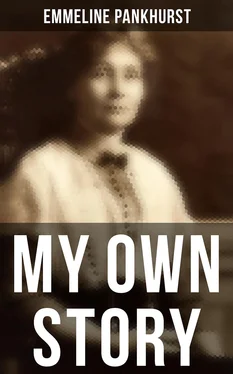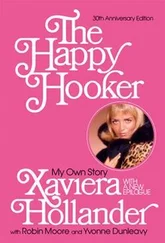These stories, with the bazaars and the relief funds and subscriptions of which I heard so much talk, I am sure made a permanent impression on my brain and my character. They awakened in me the two sets of sensations to which all my life I have most readily responded: first, admiration for that spirit of fighting and heroic sacrifice by which alone the soul of civilisation is saved; and next after that, appreciation of the gentler spirit which is moved to mend and repair the ravages of war.
I do not remember a time when I could not read, nor any time when reading was not a joy and a solace. As far back as my memory runs I loved tales, especially those of a romantic and idealistic character. "Pilgrim's Progress" was an early favourite, as well as another of Bunyan's visionary romances, which does not seem to be as well known, his "Holy War." At nine I discovered the Odyssey and very soon after that another classic which has remained all my life a source of inspiration. This was Carlyle's "French Revolution," and I received it with much the same emotion that Keats experienced when he read Chapman's translation of Homer—" ... like some watcher of the skies, When a new planet swims into his ken."
I never lost that first impression, and it strongly affected my attitude toward events which were occurring around my childhood. Manchester is a city which has witnessed a great many stirring episodes, especially of a political character. Generally speaking, its citizens have been liberal in their sentiments, defenders of free speech and liberty of opinion. In the late sixties there occurred in Manchester one of those dreadful events that prove an exception to the rule. This was in connection with the Fenian Revolt in Ireland. There was a Fenian riot, and the police arrested the leaders. These men were being taken to the jail in a prison van. On the way the van was stopped and an attempt was made to rescue the prisoners. A man fired a pistol, endeavouring to break the lock of the van door. A policeman fell, mortally wounded, and several men were arrested and were charged with murder. I distinctly remember the riot, which I did not witness, but which I heard vividly described by my older brother. I had been spending the afternoon with a young playmate, and my brother had come after tea to escort me home. As we walked through the deepening November twilight he talked excitedly of the riot, the fatal pistol shot, and the slain policeman. I could almost see the man bleeding on the ground, while the crowd swayed and groaned around him.
The rest of the story reveals one of those ghastly blunders which justice not infrequently makes. Although the shooting was done without any intent to kill, the men were tried for murder and three of them were found guilty and hanged. Their execution, which greatly excited the citizens of Manchester, was almost the last, if not the last, public execution permitted to take place in the city. At the time I was a boarding-pupil in a school near Manchester, and I spent my week-ends at home. A certain Saturday afternoon stands out in my memory, as on my way home from school I passed the prison where I knew the men had been confined. I saw that a part of the prison wall had been torn away, and in the great gap that remained were evidences of a gallows recently removed. I was transfixed with horror, and over me there swept the sudden conviction that that hanging was a mistake—worse, a crime. It was my awakening to one of the most terrible facts of life—that justice and judgment lie often a world apart.
I relate this incident of my formative years to illustrate the fact that the impressions of childhood often have more to do with character and future conduct than heredity or education. I tell it also to show that my development into an advocate of militancy was largely a sympathetic process. I have not personally suffered from the deprivations, the bitterness and sorrow which bring so many men and women to a realisation of social injustice. My childhood was protected by love and a comfortable home. Yet, while still a very young child, I began instinctively to feel that there was something lacking, even in my own home, some false conception of family relations, some incomplete ideal.
This vague feeling of mine began to shape itself into conviction about the time my brothers and I were sent to school. The education of the English boy, then as now, was considered a much more serious matter than the education of the English boy's sister. My parents, especially my father, discussed the question of my brothers' education as a matter of real importance. My education and that of my sister were scarcely discussed at all. Of course we went to a carefully selected girls' school, but beyond the facts that the head mistress was a gentlewoman and that all the pupils were girls of my own class, nobody seemed concerned. A girl's education at that time seemed to have for its prime object the art of "making home attractive"—presumably to migratory male relatives. It used to puzzle me to understand why I was under such a particular obligation to make home attractive to my brothers. We were on excellent terms of friendship, but it was never suggested to them as a duty that they make home attractive to me. Why not? Nobody seemed to know.
The answer to these puzzling questions came to me unexpectedly one night when I lay in my little bed waiting for sleep to overtake me. It was a custom of my father and mother to make the round of our bedrooms every night before going themselves to bed. When they entered my room that night I was still awake, but for some reason I chose to feign slumber. My father bent over me, shielding the candle flame with his big hand. I cannot know exactly what thought was in his mind as he gazed down at me, but I heard him say, somewhat sadly, "What a pity she wasn't born a lad."
My first hot impulse was to sit up in bed and protest that I didn't want to be a boy, but I lay still and heard my parents' footsteps pass on toward the next child's bed. I thought about my father's remark for many days afterward, but I think I never decided that I regretted my sex. However, it was made quite clear that men considered themselves superior to women, and that women apparently acquiesced in that belief.
I found this view of things difficult to reconcile with the fact that both my father and my mother were advocates of equal suffrage. I was very young when the Reform Act of 1866 was passed, but I very well remember the agitation caused by certain circumstances attending it. This Reform Act, known as the Household Franchise Bill, marked the first popular extension of the ballot in England since 1832. Under its terms, householders paying a minimum of ten pounds a year rental were given the Parliamentary vote. While it was still under discussion in the House of Commons, John Stuart Mill moved an amendment to the bill to include women householders as well as men. The amendment was defeated, but in the act as passed the word "man," instead of the usual "male person," was used. Now, under another act of Parliament it had been decided that the word "man" always included "woman" unless otherwise specifically stated. For example, in certain acts containing rate-paying clauses, the masculine noun and pronoun are used throughout, but the provisions apply to women rate-payers as well as to men. So when the Reform Bill with the word "man" in it became law, many women believed that the right of suffrage had actually been bestowed upon them. A tremendous amount of discussion ensued, and the matter was finally tested by a large number of women seeking to have their names placed upon the register as voters. In my city of Manchester 3,924 women, out of a total of 4,215 possible women voters, claimed their votes, and their claim was defended in the law courts by eminent lawyers, including my future husband, Dr. Pankhurst. Of course the women's claim was settled adversely in the courts, but the agitation resulted in a strengthening of the woman-suffrage agitation all over the country.
Читать дальше












